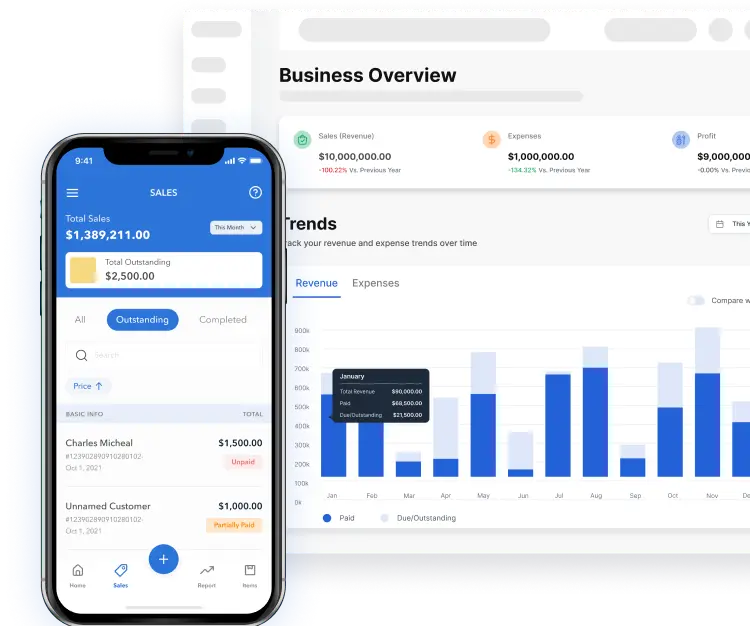Bookkeeping is one of the essential functions of any business, as it involves maintaining accurate financial records, tracking income, and expenses, and managing invoices and payroll. While this task is crucial, many business owners find it time-consuming and challenging, especially when trying to focus on growing their businesses.
This is where outsourcing bookkeeping services can be a game-changer. Instead of hiring an in-house bookkeeper, many companies turn to third-party experts or firms to handle their financial records. Outsourcing bookkeeping can be a smart move, particularly for small and medium-sized businesses, as it brings a wide range of benefits without the overhead costs associated with hiring full-time staff. In this blog, we’ll explore the advantages of outsourcing bookkeeping and what you should consider before taking this step. We’ll be discussing:
7 Benefits of Outsourcing Bookkeeping

1. Cost Savings
Outsourcing bookkeeping can significantly reduce your operating expenses. When you hire an in-house bookkeeper, you must cover not only their salary but also additional costs like benefits, payroll taxes, office space, and equipment. In contrast, outsourcing allows you to pay only for the specific services you need. Many third-party providers offer flexible pricing models, which means you only pay for the hours worked or services rendered. This can be a desirable option for small businesses that do not need full-time bookkeeping support.
2. Access to Expertise
By outsourcing, you gain access to a team of experienced bookkeeping professionals who are up-to-date with the latest financial regulations, accounting software, and industry best practices. Outsourcing firms typically employ certified professionals who can handle complex bookkeeping tasks and offer valuable insights to improve your financial management. This level of expertise can be difficult to find in a single employee, making outsourcing a more effective solution for ensuring compliance and accuracy.
3. Improved Accuracy
When handling your bookkeeping or relying on an inexperienced staff member, mistakes can happen—potentially costing your business time and money. Outsourcing ensures a higher level of accuracy because the bookkeeping tasks are handled by experienced professionals who follow strict processes and use the latest software. This reduces the likelihood of errors in your financial records, which is critical for maintaining a healthy cash flow and ensuring you meet your tax obligations.
4. Focus on Core Business Activities
Bookkeeping is a time-consuming task that can divert your attention from other critical aspects of running a business, such as marketing, sales, and product development. By outsourcing bookkeeping, you free up valuable time and resources that can be better spent on activities that drive growth and revenue. Outsourcing allows business owners and managers to focus on what they do best, while the bookkeeping is handled efficiently by experts.
5. Scalability
As your business grows, so do your financial management needs. Outsourcing bookkeeping gives you the flexibility to scale services up or down based on your company’s needs. If your transaction volume increases during busy seasons or as you expand, the outsourcing firm can easily adjust to meet your requirements. This scalability means you won’t have to worry about hiring and training additional staff when your business grows or cutting costs when you experience a slowdown.
6. Increased Security
Bookkeeping involves handling sensitive financial data, and protecting that information is essential. Outsourcing firms use secure accounting software and data protection protocols to safeguard your financial records. Many providers have invested in advanced technologies and systems to protect against fraud, data breaches, and cyber threats. Additionally, outsourcing firms are often held to strict confidentiality agreements, ensuring that your financial information remains private and secure.
7. Better Financial Insights
Outsourcing bookkeeping doesn’t just provide basic financial data; many service providers offer comprehensive financial reports and insights to help you make informed business decisions. These reports can include profit and loss statements, balance sheets, cash flow analysis, and more. With access to accurate, up-to-date financial information, business owners can identify trends, forecast future performance, and make data-driven decisions to improve profitability.
Things to Look Out for Before Outsourcing Bookkeeping

Outsourcing bookkeeping comes with numerous advantages, but it’s essential to consider certain factors before making the decision. Here are some key things to look out for:
1. Reputation and Experience
When choosing a bookkeeping service provider, it’s crucial to research their reputation and experience in the industry. Look for firms with a proven track record of success and positive client reviews. Ask for references and check whether they have experience working with businesses similar to yours.
2. Data Security Measures
Given the sensitive nature of financial data, make sure that the provider you choose has strong data security protocols in place. Ask about their cybersecurity measures, encryption standards, and whether they comply with industry regulations like GDPR or HIPAA if applicable.
3. Technology and Software
The firm you hire should use modern bookkeeping software that integrates with your existing systems. Cloud-based solutions are often preferred because they allow you to access your financial information in real-time from any device. Ensure that the provider uses reliable, user-friendly software to streamline processes.
4. Cost Transparency
Make sure you understand the pricing structure of the service provider. Some firms charge by the hour, while others offer monthly or project-based fees. Clarify what services are included in the fee and whether there are any hidden costs. Transparency in pricing is crucial for maintaining a good working relationship.
5. Communication and Accessibility
Effective communication is essential when outsourcing any business function. You’ll want to ensure that the provider is accessible and responsive when you need them. Ask about their communication channels, turnaround times, and how often they’ll provide updates on your financial records.
6. Customization and Flexibility
No two businesses are alike, so your bookkeeping needs may differ from those of other companies. Look for a provider who offers customizable services tailored to your specific requirements. Flexibility is also important, as your needs may change as your business grows.
7. Service Level Agreement (SLA)
Finally, ensure that your provider offers a Service Level Agreement (SLA) outlining their commitments in terms of performance, response times, and deliverables. An SLA provides clear expectations and holds the provider accountable for meeting agreed-upon standards.
Conclusion
Outsourcing bookkeeping offers businesses a wide range of benefits, from cost savings and increased accuracy to improved scalability and security. It allows you to focus on core business activities while professionals manage your financial records. However, before choosing a bookkeeping provider, it’s essential to carefully consider factors like reputation, technology, data security, and cost transparency.
Ultimately, outsourcing can be a game-changer for businesses looking to streamline their financial operations while maintaining accurate records. By partnering with the right bookkeeping provider, you can ensure that your business runs smoothly, your financial data is secure, and you have access to valuable insights that drive growth.
Related Content






